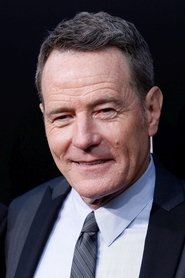
Ask Your Own Question
What is the plot?
The episode "Full Measure" begins with a flashback to the aftermath of the previous episode, where Walter White is grappling with the consequences of his actions. He is in a state of turmoil, reflecting on the death of his former partner, Jane Margolis. The scene shifts to the present, where Walter is in a tense conversation with his wife, Skyler. She is concerned about his erratic behavior and the secrecy surrounding his activities. Walter deflects her concerns, insisting that everything is under control.
Meanwhile, Jesse Pinkman is dealing with the emotional fallout from Jane's death. He is in a deep state of grief and guilt, struggling to cope with the loss. He visits Jane's father, who is a police officer, and they share a moment of silence, highlighting Jesse's internal conflict. Jesse feels responsible for her death, and this guilt weighs heavily on him throughout the episode.
Walter meets with Gus Fring, the drug lord who has been his employer. Walter is desperate to secure his position in the drug trade and is willing to do whatever it takes to prove his worth. Gus, however, is cold and calculating, and he makes it clear that he is not easily impressed. Walter's desperation leads him to make a bold move: he proposes a new method of producing methamphetamine that he believes will be more efficient and profitable.
As Walter and Gus discuss the new plan, tensions rise. Gus is skeptical of Walter's abilities and questions his loyalty. Walter, feeling cornered, makes a risky decision to confront Gus directly about his intentions. He asserts that he is not afraid of the consequences and is willing to take drastic measures to protect his interests. This confrontation sets the stage for the escalating conflict between the two characters.
In a parallel storyline, Jesse is struggling with his own demons. He seeks solace in drugs and reckless behavior, trying to numb the pain of his loss. He visits a local bar, where he encounters a group of people who are also involved in the drug trade. Jesse's interactions with them reveal his vulnerability and the depth of his emotional turmoil. He is torn between his desire to escape his reality and the weight of his guilt.
The episode takes a dark turn when Walter decides to take matters into his own hands. He realizes that Gus is planning to eliminate him as a threat. In a desperate bid for survival, Walter makes a shocking decision: he decides to kill Gale Boetticher, Gus's assistant and the chemist who has been working on the meth production. Walter believes that by removing Gale, he will secure his own position and force Gus to rely on him.
Walter's plan unfolds as he prepares to confront Gale. He meticulously gathers the necessary tools and weapons, showcasing his transformation into a more ruthless character. The tension builds as Walter approaches Gale's apartment, and the audience can feel the weight of his decision. He is conflicted but resolute, knowing that this act will change everything.
In a climactic moment, Walter confronts Gale in his home. The scene is charged with emotion as Gale expresses his confusion and fear. Walter, with a gun in hand, struggles with the moral implications of his actions. He ultimately pulls the trigger, killing Gale in cold blood. This act solidifies Walter's descent into darkness and marks a turning point in his character arc.
The episode concludes with Walter returning home, visibly shaken but resolute in his decision. He is now fully entrenched in the criminal world, having crossed a line that cannot be uncrossed. The final moments of the episode leave the audience with a sense of foreboding, as Walter's choices have irrevocably altered the course of his life and the lives of those around him.
What is the ending?
In the ending of "Full Measure," Walter White confronts a critical moment in his descent into the drug trade. After a tense negotiation with Gus Fring, Walter's life takes a dark turn as he makes a drastic decision to protect himself and his family. The episode culminates in a violent confrontation that seals the fate of several characters, leading to a significant shift in the power dynamics of the drug world.
The episode "Full Measure" opens with a stark and tense atmosphere, immediately immersing the audience in the aftermath of the previous events. Walter White, portrayed by Bryan Cranston, is in a state of turmoil, grappling with the consequences of his actions. He is desperate to protect his family and maintain control over his life, which has spiraled into chaos due to his involvement in the drug trade.
As the scene unfolds, Walter meets with Gus Fring, played by Giancarlo Esposito, in a dimly lit fast-food restaurant. The tension is palpable as Walter attempts to negotiate his position. He is acutely aware that Gus is a formidable adversary, one who operates with cold precision. Walter's internal conflict is evident; he is torn between his desire to assert his dominance and the fear of losing everything he holds dear.
In a pivotal moment, Walter realizes that he must take drastic measures to secure his safety. He makes a fateful decision to confront the threat posed by Gus. The scene shifts to a warehouse where Walter meets with his former partner, Jesse Pinkman, played by Aaron Paul. Jesse is in a vulnerable state, grappling with his own demons and the weight of their shared criminal enterprise. Walter's manipulation of Jesse becomes apparent as he uses their friendship to further his own agenda.
The tension escalates as Walter reveals his plan to eliminate the threat posed by Gus. He instructs Jesse to carry out a violent act, showcasing the moral decay that has taken root in both characters. Jesse, caught between loyalty and fear, reluctantly agrees, highlighting the complex dynamics of their relationship. The emotional stakes are high as both characters navigate their conflicting motivations.
As the climax approaches, the scene shifts to a chilling confrontation between Walter and Gus. The atmosphere is thick with suspense as Walter's resolve is tested. He is determined to assert his power, but the cost of his actions looms large. The confrontation culminates in a shocking act of violence that leaves a lasting impact on both characters and the audience.
In the aftermath, the consequences of Walter's choices become evident. The episode concludes with a haunting sense of inevitability as Walter's transformation into a ruthless figure is solidified. The final scenes depict the fallout from the violent confrontation, leaving viewers with a sense of foreboding about the future of the characters.
Walter White's fate is sealed as he embraces his role in the drug world, fully aware of the moral compromises he has made. Jesse, on the other hand, is left grappling with the weight of his decisions, caught in a cycle of violence and despair. The episode ends with a stark reminder of the cost of ambition and the lengths to which individuals will go to protect their interests, setting the stage for the unfolding drama in the series.
Is there a post-credit scene?
In "Full Measure," the thirteenth episode of Season 3 of Breaking Bad, there is no post-credit scene. The episode concludes without any additional footage or scenes after the credits roll. The focus remains on the intense and dramatic events that unfold throughout the episode, particularly the climax involving Walter White and the consequences of his decisions. The absence of a post-credit scene emphasizes the weight of the narrative and the emotional turmoil experienced by the characters, particularly Walter and Jesse Pinkman, as they navigate the dangerous world they inhabit.
What decision does Walter White make regarding Gale Boetticher in this episode?
In 'Full Measure', Walter White makes the pivotal decision to kill Gale Boetticher. He realizes that Gale is being groomed to replace him in Gus Fring's operation, which would leave Walter without a way to secure his position and protect himself. This decision is driven by desperation and a need to assert control over his circumstances.
How does Jesse Pinkman react to Walter's plan to kill Gale?
Jesse Pinkman is initially shocked and horrified by Walter's plan to kill Gale. He struggles with the moral implications of the act and expresses his discomfort, feeling that they are crossing a line into a darker territory. Jesse's internal conflict highlights his lingering humanity and the toll that their criminal activities are taking on him.
What is the significance of the final scene involving the gun?
The final scene of 'Full Measure' is significant as it shows Walter White's transformation into a more ruthless figure. He uses a gun to confront Gale, symbolizing his willingness to do whatever it takes to survive in the drug trade. The scene is tense and filled with emotional weight, as it marks a turning point in Walter's character, solidifying his descent into moral ambiguity.
How does Gus Fring react to the events of the episode?
Gus Fring remains calm and collected throughout the episode, even as tensions rise. After Gale's death, he is shown to be calculating and strategic, indicating that he is not easily rattled. His reaction underscores his character as a methodical and ruthless businessman, who is willing to eliminate threats to maintain his empire.
What role does Mike Ehrmantraut play in this episode?
In 'Full Measure', Mike Ehrmantraut plays a crucial role as Gus Fring's enforcer. He is involved in the tense dynamics between Walter and Gus, and his presence adds a layer of intimidation. Mike's character is portrayed as pragmatic and loyal to Gus, and he serves as a reminder of the violent world that Walter and Jesse are entangled in.
Is this family friendly?
"Breaking Bad," particularly in Season 3, Episode 13 titled "Full Measure," is not considered family-friendly. The episode contains several potentially objectionable or upsetting scenes and aspects, including:
-
Violence: There are intense scenes involving gun violence and threats, which may be disturbing for children or sensitive viewers.
-
Drug Use: The show revolves around the illegal drug trade, and this episode includes references to drug manufacturing and the consequences of addiction.
-
Moral Ambiguity: Characters engage in morally questionable decisions, leading to complex emotional situations that may be difficult for younger audiences to understand.
-
Death: The episode deals with themes of mortality and includes scenes that depict the aftermath of violent confrontations.
-
Strong Language: The dialogue contains frequent use of profanity, which may not be suitable for younger viewers.
-
Emotional Distress: Characters experience significant emotional turmoil, including fear, desperation, and betrayal, which could be upsetting for sensitive individuals.
Overall, the themes and content of this episode are geared towards a mature audience and may not be appropriate for children.


















